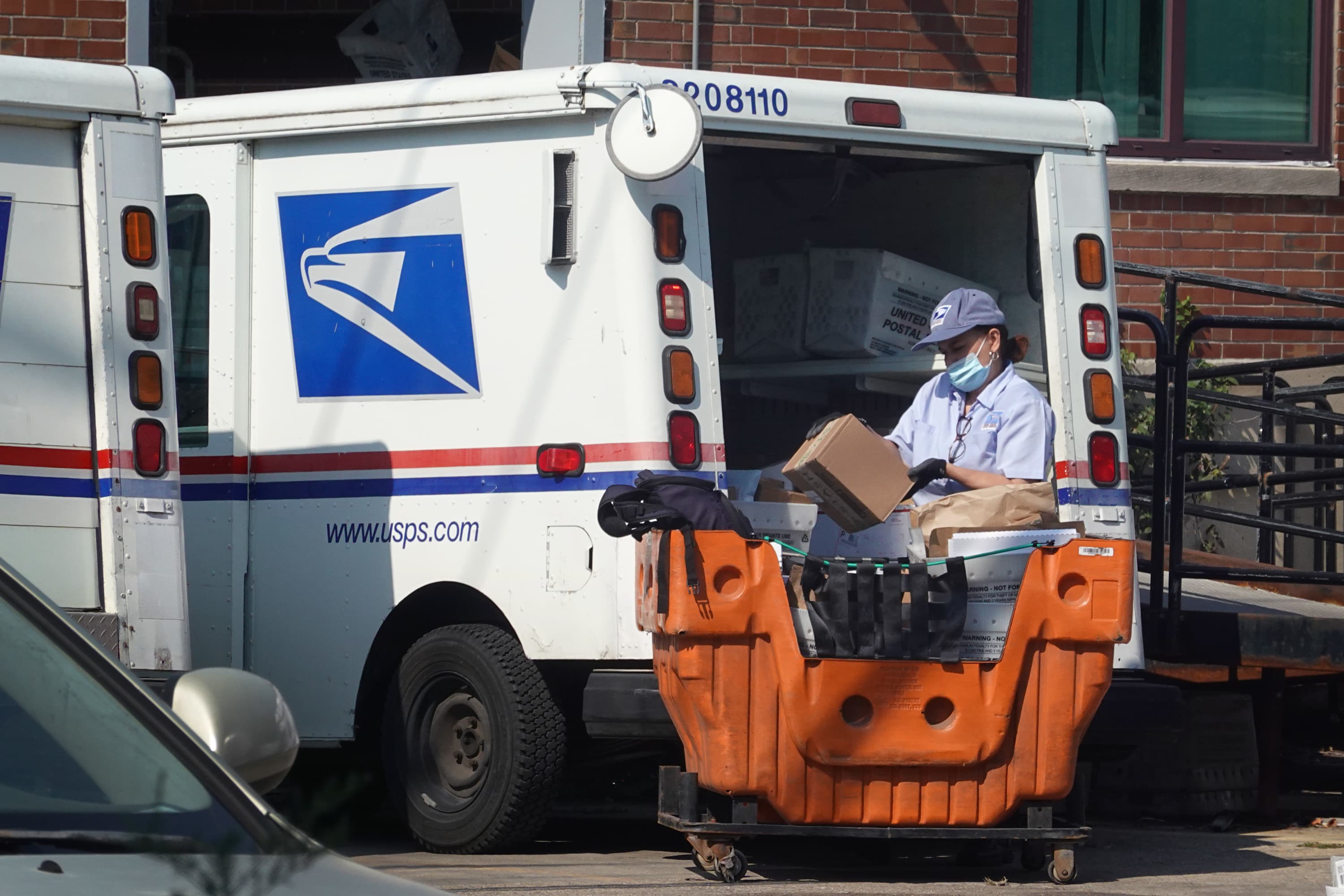AHLA Pushes to Defeat L.A. Hotel Homeless Housing Initiative
The American Hotel & Lodging Association has launched a campaign to defeat a Los Angeles municipal ballot initiative posed by a union representing L.A.-based hospitality workers that would, among other elements, allow individuals experiencing homelessness to stay in vacant hotel...

The American Hotel & Lodging Association has launched a campaign to defeat a Los Angeles municipal ballot initiative posed by a union representing L.A.-based hospitality workers that would, among other elements, allow individuals experiencing homelessness to stay in vacant hotel rooms across the city alongside occupied rooms through a voucher system.
This move, according to AHLA, would be an "absolute failure," and put "hotel guests and hotel employees in physical danger," AHLA president and CEO Chip Rogers told BTN.
The initiative, formally known as "Initiative A, Hotel Developer Land Use and Replacement Housing Initiative," as of now will appear on a March 5, 2024, Los Angeles municipal ballot. If it passes, L.A. would be the first city in the U.S. to have such a law.
The Proposal
According to proposal from Unite Here Local 11, the hospitality workers' union, the initiative would require new and existing hotels in Los Angeles to adhere to "responsible business practices, including making guest rooms available to unhoused Angelenos on a non-discriminatory basis, and be subject to city oversight."
This would require L.A. hotels to report the number of same-day vacant rooms to City Hall each day—by 2:00 p.m., according to Rogers, a time he noted typically is before hotel check-in time—along with average daily rates. Once reported and processed, the Los Angeles city housing department would then provide unhoused individuals with vouchers for that same night's stay in a Los Angeles hotel. Hotels would not be able to discriminate, or refuse vouchers or service to these guests, who would have access to hotel amenities. Furthermore, hotels would have to adhere to obtain specific permits based on the property's total number of guest rooms.
Unite Here Local 11 did not respond for further detail or comment.
AHLA has formed a committee to lobby against the initiative, dubbed Angelenos Protecting Hospitality. Rogers serves as president of that committee. APH is working to defeat the initiative through education and paid advertising before the election. Rogers said Unite Here could remove the initiative from the ballot by Dec. 8.
While this proposal may sound familiar to Californians following Project Roomkey, a statewide initiative launched during the Covid-19 pandemic to house unhoused individuals in vacant hotels, this program is "apples and oranges," Rogers said. Project Roomkey, he said, incorporated the entire hotel, not just vacant rooms next to occupied rooms within a property.
Project Roomkey, Rogers said, "used the entire hotel, rented out the entire property [and] provided wrap-around services, including health and security services to essentially turn those [hotels] into homeless shelters." Still, there were "lots of problems" with that program, Rogers said, including payouts to the Hotel Whitcomb in San Francisco and the Mayfair Hotel in Los Angeles, collecting $19 million and $11.5 million, respectively, in damages from their respective cities.
Unlike Project Roomkey, the L.A. homeless housing Initiative does not seem to include health and security services for guests, hotel staff or unhoused individuals. What the new initiative does include, however, is a replacement housing regulation process to be overseen by the city.
The Response
To understand public opinion around this initiative, AHLA commissioned a survey conducted Sept. 18-20 by Morning Consult of 2,203 U.S. adults. About 72 percent of respondents said they would be deterred from booking a hotel room in Los Angeles if the initiative passes and takes effect, and 42 percent said it would be a "major" deterrent.
About 70 percent of respondents said they would be deterred from attending a business conference in L.A. if the initiative passes and takes effect, and more than half of them said it would be a "major" deterrent.
Of those who felt the program would deter them from booking a hotel room in the city, 34 percent said they would "definitely" stay outside of L.A., and 20 percent said they would probably stay outside city limits. These numbers, according to Rogers, are indicative of potential dropping in hotel occupancy in Los Angeles.
Potential Impact on Hotels and Staff
If that comes to fruition, "the number of people staying at hotels in Los Angeles is going to drop precipitously and, with that, hotel staff are going to lose their jobs," Rogers said.
Another element of the proposal that would impact hotel staff are the program's regulatory tasks added to their plate. Those tasks include, Per the initiative's stipulations, hotels would have to calculate vacant rooms and average daily rate. Then, hotel staff would have to call City Hall and process this information.
Housing individuals experiencing homelessness in hotels is a process with variables, according to Rogers.
"What happens if there's damage? You don't know who the person is—there's no credit card to back it up," Rogers said. The program would not require identification or payment method for unhoused individuals. "The voucher is only good for one night. What happens if they decide they're not going to leave? Now [hotel employees] must call law enforcement," he added. "None of this was thought out," he said.
Rogers also cited results from a June 2023 University of California at San Francisco study, which reported that mental health challenges are prevalent within the unhoused community, suggesting they could create an unsafe work environment for hospitality employees. According to the study, which included responses from individuals experiencing homelessness, two-thirds of respondents reported current mental health symptoms, and more than one-third had visited an emergency department in the prior six months. According to Rogers, this data further points to ways in which the city needs a "realistic solution" to solve the homelessness crisis, and this ballot measure is "not a realistic solution."
"Using taxpayer dollars to house homeless individuals alongside paying guests in hotels for one night does nothing to solve the homelessness crisis facing L.A. It would only endanger L.A. hotel employees, devastate tourism in the city, and ultimately destroy L.A.’s hotel industry," according to APH.
While highlighting these potential impacts from the program, Rogers highlighted the program's lack of consideration for both hotel employees and unhoused individuals.
"Now you're taking a population that needs attention, needs medical care, and putting them in hotel rooms to be taken care of by hotel employees who are not trained in any way to deal with this population," Rogers said. "We find it a little interesting that the Union would be supporting a measure that would create job loss among its own members," he added.
Unite Here Local 11 has yet to respond publicly to discourse around the ballot initiative, nor has the Union communicated with AHLA or APH representatives.
Next Steps
For corporates who would be deterred from hosting events in L.A., or any corporate entity looking to book significant rooms in the city, Rogers suggests they contact elected officials and the Union and "tell them they have grave concerns about this policy and that they would look elsewhere to book their rooms and hold their events."
Other organizations joining APH and AHLA in challenging the L.A. homeless housing ballot initiative include the California Hotel & Lodging Association, the Hotel Association of Los Angeles, the Los Angeles County Business Federation, the Greater Los Angeles Area Chamber of Commerce, the Northeast Los Angeles Hotel Owners Association and the LAX Coastal Chamber of Commerce.
"L.A.'s homeless population needs long-term solutions and specialized care that only social and health care workers can provide," Rogers reiterated. "It’s dangerous to force untrained hotel employees and guests to shoulder these responsibilities."

 Konoly
Konoly 































